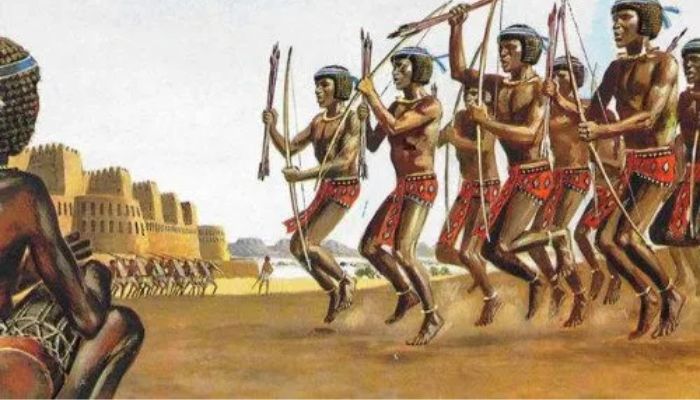There are many misconceptions about Africa, and most of these have been preached by the Europeans over the years, and have also been believed by Africans as their realities. Some of these misconceptions have been researched over time and have been discovered to be untrue.
This article will look at some of the greatest lies that have been told about Africa and Africans by the Europeans.
5 Greatest Lies Told About Africa
1. Africans Sold Their Own During Slave Trade
This is a common misconception about Africans. Although Africans share the same skin color, they do not identify themselves with that, instead, they identify with people with whom they share the same language or culture. That is what this means when it is argued that Africans never sold their own.
Africans never sold people they shared the same language or culture with. Most slaves sold by Africans into slavery were prisoners of war or kidnapped people from neighboring cities or political enemies.
Before the emergence of the trans-Atlantic slave trade, Africans were already buying and selling slaves and these slaves were used on farms and in their homes. The trade grew at the time when Africans were constantly at war with each other, taking prisoners and exchanging them for weapons.
The pawnshop was a common practice in West Africa before the coming of the Europeans. This is also known as debt or bondage slavery. It involved the use of people as collateral for a debt. After the introduction of the slave trade into the continent, these pawns were then sold to the Europeans.
The people who did the exchange did not know the level of brutality and inhumanity of the treatment these slaves got from their slave masters across the Atlantic. If they did, the trade wouldn’t have lasted as long as it did.
See Also: 10 African Slaves Who Became Legendary
2. Africa is a Dark Continent
The term “Dark Continent” was coined by Welsh explorer, Henry Morton Stanley after he named his book about his exploration of Africa, “Through the Dark Continent”. Over time, many people used the term to describe the continent.
Although there are different ways the above statement can be translated, while some see it as talking about skin color, we will be seeing it from the angle of Africa having no notable history before the coming of the white people.
Interestingly, anthropologists and modern science have confirmed that Africans are the oldest race in the world, it has also been proven that Africa had functioning systems before the coming of the Europeans. These ancient civilizations spread across the Maghreb and the Sahel. Some of these precolonial states include Kemet, Ajuran Empire, Bachwezi Empire, Buganda Kingdom, and Dagbon Kingdom.
The existence of these civilizations has been backed by findings of archeologists and anthropologists which prove they existed even before the Europeans came, which dismisses the lie that Africa had no history before the coming of the white people.
Today the continent can be referred to as the cradle of civilization and humanity.
3. Egypt is the Oldest Civilization in Africa

While it is an early and one of the oldest civilizations in Africa, Egypt is not the oldest civilization in Africa. The oldest civilization in Africa is the Nubian Kingdom of Ta-seti. It existed before Ancient Egypt.
This Nubian kingdom was known as the “Land of the Bow” which was their weapon. Ta-seti became the most powerful kingdom in the Nile region during the Naqada Period of Egyptian History.
Findings suggest that the Nubians already had their Dynasty, while Egypt was unified by Narmer. This further proves that this kingdom existed before the Egyptian civilization and that it was the model for it.
Its monarchy was established before 3800 BCE, providing the template for Egyptian royalty after Upper and Lower Egypt became united under one dynasty, also known as Kemet.
Unfortunately, this kingdom was given little to no attention. Readings have been discovered beneath the sand by archeologists which include bases of pyramids, burial mounds, and tombs, which were unique to Nubia.
4. Africa Had no Military Tactics Before the Coming of the Europeans
The above statement is not only false but a total drift from actuality. Africa has one of the oldest militaries in the world. One of these was the Ancient Egyptian and Nubian armies and the Aksumite army. These armies were compared to the Roman army and other world powers during those times.
Although they did not have sophisticated weapons like the world powers, they had quite a reputation when it came to archery. It was said that they could target the eye of an opponent during a battle.
Weapons of these ancient armies ranged from simple bows and arrows to daggers, spears, and axes. The tactics of these ancient militaries include building fortresses and digging deep ditches around these ditches.
The Egyptian army was famous for its use of horse-drawn chariots in warfare, and subsequently, fighting off the invasion of Babylonians, Assyrians, and Persians.
Other armies like the Umayyads, Abbasids, Fatimids, Mamluks, and Ottomans consolidated the strength of North Africa. Similarly, Ethiopian soldiers defeated the Italians at the Battle of Adwa, during the first Italo-Ethiopian wars without having weapons as sophisticated as that of their enemies.
Similarly, the Zulu army was known for its extremely good warriors, who performed with utmost determination in whatever kind of war and with whomever. They were also famous for using a spy system, where they had a working system for obtaining and transmitting intelligence reports from their places of posting. Their abilities in battle were recognized by the Europeans who referred to them as the “Horns and the Bulls”.
So the next time someone tells you Africa had no military tactics, ask them to read about some of the early wars fought on the continent.
5. Africans Never Sailed the Sea
It has been recorded that before the trans-Atlantic slave trade, Africans attempted to sail the Atlantic Ocean. Mansa Musa, the revered king of the Mali Empire revealed that his predecessor, Mansa Abu Bakr II, led a fleet in an attempt to sail across the Atlantic Ocean.
In 1312, Mansa Abu Bakr II equipped 2000 ships and filled them with skilled men, gold, water, and food to last for several years, but they never returned.
Mansa Musa told his story in 1324, when he was traveling to Mecca for Hajj, and stayed briefly in Cairo.
Historians state that this hypothesis could mean that Africans beat the Europeans to the Americas. Ivan Van Sertima’s thesis titled “They Came Before Columbus” cited stories told by oral historians called Griots, who claimed that Mansa Abu Bakr II passed the throne to Mansa Mousa, before setting sail across the Atlantic.
Historians who support this theory state that the expedition was not spoken about because the Griots found the abandonment of his throne dishonorable. They believed that he might have reached the Americas. Others think that Abu Bakr II settled and established a colony in Brazil, which he named Bourne Bambouk. It was said to have been located near present-day Recife, in Pernambuco, Brazil.




















